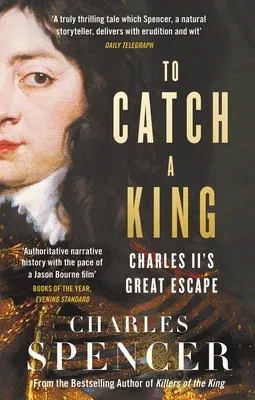How did the most wanted man in the country outwit the greatest manhunt
in British history?
In January 1649, King Charles I was beheaded in London outside his
palace of Whitehall and Britain became a republic. When his eldest son,
Charles, returned in 1651 to fight for his throne, he was crushed by the
might of Cromwell's armies at the battle of Worcester.
With 3,000 of his supporters lying dead and 10,000 taken prisoner, it
seemed as if his dreams of power had been dashed. Surely it was a
foregone conclusion that he would now be caught and follow his father to
the block? At six foot two inches tall, the prince towered over his
contemporaries and with dark skin inherited from his French-Italian
mother, he stood out in a crowd. How would he fare on the run with
Cromwell's soldiers on his tail and a vast price on his head?
The next six weeks would form the most memorable and dramatic of
Charles' life. Pursued relentlessly, Charles ran using disguise,
deception and relying on grit, fortitude and good luck. He suffered
grievously through weeks when his cause seemed hopeless. He hid in an
oak tree - an event so fabled that over 400 English pubs are named Royal
Oak in commemoration. Less well-known events include his witnessing a
village in wild celebrations at the erroneous news of his killing; the
ordeal of a medical student wrongly imprisoned because of his similarity
in looks; he disguised himself as a servant and as one half of an
eloping couple. Once restored to the throne as Charles II, he told the
tale of his escapades to Samuel Pepys, who transcribed it all.
In this gripping, action-packed, true adventure story, based on
extensive archive material, Charles Spencer, bestselling author of
Killers of the King, uses Pepys's account and many others to retell
this epic adventure.

